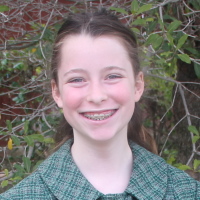
by Gideon Marcus

The Bomb. Since its creation and use in 1945, it has overshadowed our world. For the first time since we descended from the trees a million years ago, humanity had the means to destroy itself in one blow. It can't help but influence our culture, our politics, our nightmares. It is no surprise that atomic holocaust has figured prominently in our visual and printed media.
Last weekend, at a pre-premiere in Los Angeles, my daughter and I watched The Flight that Disappeared, the latest film to draw inspiration from the universal fear that is nuclear annihilation.

In brief: Trans-Coastal Flight 60, an elderly prop-driven DC-6, takes off from Los Angeles Airport heading for Washington D.C. Onboard are three pivotal characters summoned to the nation's capitol for a top secret meeting. One is Dr. Carl Morris, who has developed the next inevitable phase in nuclear weaponry — a device that singly can destroy an entire country. His colleague, mathematician Marcia Paxton, is also on the flight. Completing the trio is Tom Endicott, a rocket propulsions engineer with a design for a super-ICBM.
Hours out from LAX, after the sun has set, the plane begins an inexorable climb. The controls do not respond, and soon, Flight 60 is ten miles up. Its passengers collapse one-by-one from oxygen starvation, the propellers stop turning, yet still the plane rises. It disappears from ground radar, all radio contact cut. A massive search uncovers no trace of the missing aircraft.
Endicott awakens to find the plane in daylight, the engines silent. All of the passengers are in a state of suspended animation save for Paxton and Dr. Morris. Their watches have stopped…as have their hearts. As they ponder this new situation, wondering if they are dead, a mysterious figure beckons them out of the plane. He represents the foreman of a jury, a jury of people who do not yet exist. They inhabit the intersection of the present and the future made possible by the vast importance of the meeting of the three key passengers.
It is presented that the marriage of Morris and Paxton's creations will inevitably lead to a life-ending catastrophe, leaving Earth a shattered, barren land. It matters not that the weapon is yet undeveloped or that the scientist trio will not directly build it. Once it is conceived, it will someday be built, and our race must die. The jury determine that the scientists are all guilty of genocide, and that they must remain in their weird timeless void forever so that the future might be saved.
Reprieve comes in the form of one of the jurors' dissent. It is no one's place, he argues, to render such a judgment, even with the stakes so high. The accused must be allowed to return, even if the consequences be destruction in the ultimate.
We next see Endicott waking up once more. It is night again, and the plane is not only running, but on schedule. None of the passengers nor the flight crew remember anything out of the ordinary. Only the trio remember. Upon landing, they learn that their plane was missing for 24 hours beyond the anticipated flight time. Convinced of the sincerity of the message delivered by the unborn future, Dr. Morris tears up his notes.

Little more than an overlong episode of The Twilight Zone, I can't imagine Flight will be a big hit. While the story is reasonably sound, if utterly predictable from the beginning, it is padded to the point of being ponderous, even for a short movie. Had this been an hour-long TV special (with commercials), it probably would have been more effective.
That said, I did find the movie somehow compelling. The idea that certain junctures of history are so crucial that they weaken the fabric of space-time is an interesting one. And while the jury sequence is a bit histrionic, there is merit to pondering whether humanity should be allowed to stumble along blindly when the risk be great, like a child lighting a match in a gunpowder factory (the simile cited in the movie). Wouldn't it be nice if a guardian angel could tell us which line constituted a step too far in the march toward extinction.
So I didn't dislike Flight, nor was I particularly bored. Perhaps a more skilled writer might recycle this premise into something truly memorable. As is, it's a two-star movie.
Which is still better than a lot of the films we watch!

by Lorelei Marcus
This week we watched The Flight That Disappeared, and, unlike Voyage to the Bottom of the Sea, it was exactly what it promised. The movie wasn't bad, but it also wasn't anything special. The acting was good, but nothing outstanding, the set was pretty much just an airplane the whole movie, and the plot was predictable from the start.
Something interesting about the movie itself however, was that it was in black and white. It kept fading into what could've been a commercial break, which leads me to believe it was made to be aired on TV. I have to give the film credit, it did well despite being on a small budget, though you can tell they really liked using the fog machine (to simulate being in the air, I guess).
Though the acting was nothing stupendous,there was one actor that stood out to me. One of the three main characters, Endicott, reminded me a great deal of William Shatner, whom I saw in a previous episode of The Twilight Zone.
Anyway, that's all I really have to say about it. Me and my father predicted the entire movie pretty much from the start, so it was really just a matter of waiting it out. I would give this movie a 2 out of 5. You may see it if you wish, but I highly recommend watching The Twilight Zone instead.
This is the Young Traveler, signing off.
